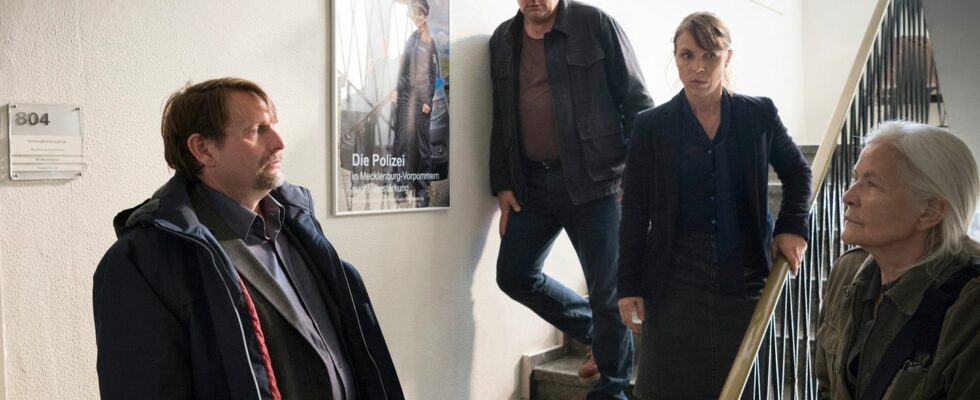“Police Call 110” from Rostock
Why can’t an acquitted murderer be tried again?
“Polizeiruf 110” from Rostock: The murderer Guido Wachs (Peter Trabner, l.) meets the mother of his victim (Hildegard Schmahl, r.) in the police station.
© NDR/Christine Schroeder / ARD
In the rerun of “Polizeiruf 110” from Rostock, the police had to let the convicted murderer go – because he had already been acquitted once. What is the point of this law?
The family man Guido Wachs (Peter Trabner) raped and murdered a girl 30 years ago, and thanks to a DNA report he was now convicted. But the investigation was useless: because the perpetrator had already been charged with the murder and acquitted, he cannot be brought to court again.
The “Polizeiruf 110” addresses the law
This is regulated in Paragraph 362 of the Criminal Procedure Code. Anyone who has seen “Polizeiruf 110” will have found this law to be a blatant injustice. Because in the film it protects a murderer and a rapist.
Lawyers call this principle “Ne bis in idem”. The Latin phrase means something like “not twice for the same thing” and is valid in most western democracies. It is considered a cornerstone of the rule of law.
The idea behind this law is to protect citizens from arbitrary persecution by the state. According to this understanding of justice, a legally binding judgment should clarify a specific matter conclusively. From now on, the former accused has legal certainty. Federal Constitutional Law 1953 judged: “Legal peace and legal certainty are of such central importance for the rule of law that, for their sake, the possibility of an incorrect decision in an individual case must be accepted.”
Only a few exceptions
There are, however, exceptions that allow a case to be reopened. This applies primarily to serious errors in the trial itself, i.e. if a false statement or a falsified document exonerates the accused. Or if the acquitted person makes a credible confession. Evidence obtained through new investigative methods such as genetic analysis, on the other hand, does not lead to a reopening.
This only applies in one direction. If new evidence in favor of of a convicted person, then a retrial is possible. Article 359 The Code of Criminal Procedure expressly provides that grounds for reopening a case may also be “new facts or evidence”.
Several cross-party attempts in the Bundestag to reform Paragraph 362 have so far failed. As unbearable as it may be for the relatives of victims of serious crimes, once a perpetrator has been legally acquitted, he cannot be prosecuted again by German courts.
The “Polizeiruf” episode “Für Janina” was first broadcast on November 11, 2018.


